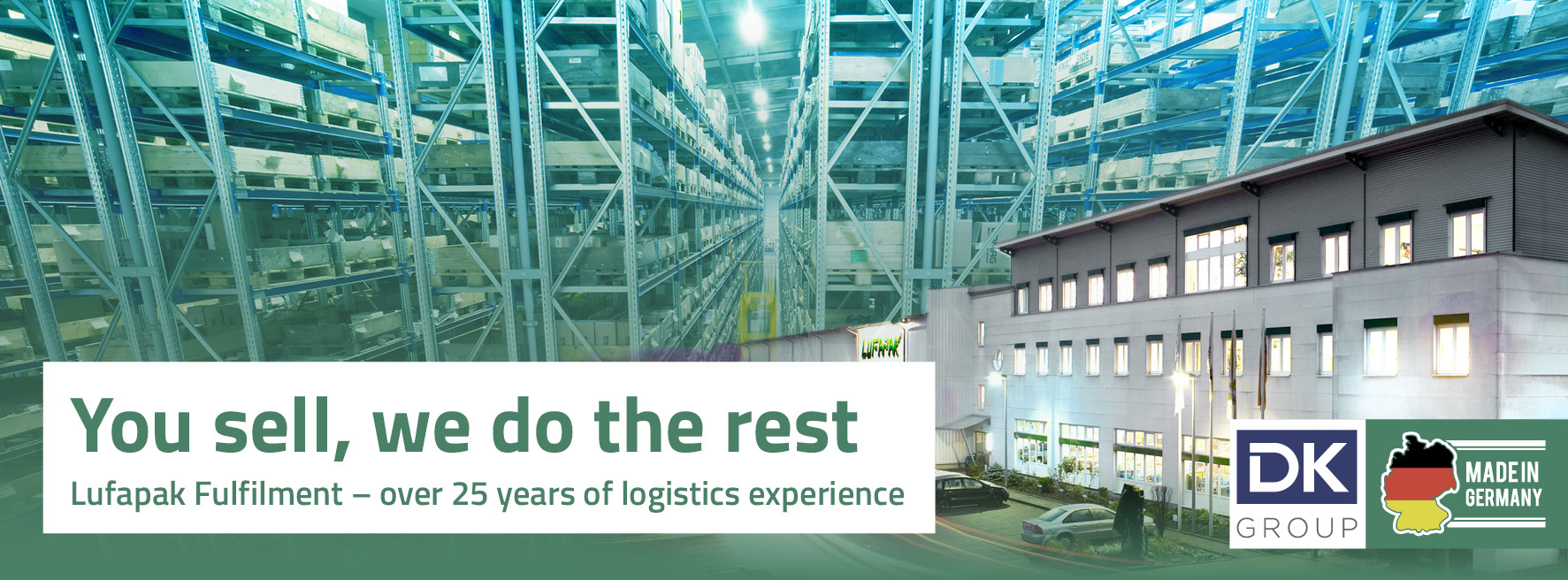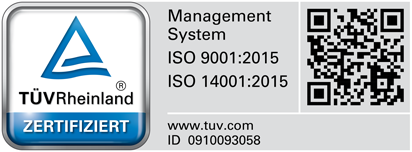sales@lufapak.de +49 2631/384-0 Contactform
Express transportation
Express transportation refers to a shipping method designed to move goods and shipments from one location to another in the shortest possible time. Unlike traditional shipping methods, which are often based on standard delivery times with fixed routes and schedules, express transportation offers a fast, flexible and often customized solution for urgent delivery requirements.
The importance of express transportation has increased significantly in today’s fast-paced world, where time is often synonymous with money. Companies in various industries, from e-commerce to pharmaceuticals to automotive, rely on express transportation to optimize supply chains, minimize warehousing and maximize their customer satisfaction through fast delivery times. Private individuals are also increasingly using express transportation to send important documents or time-critical shipments.
Compared to traditional methods, express transport is characterized by its high priority and direct routes, which make it possible to significantly shorten transit times. While traditional shipping methods focus on cost efficiency for less urgent shipments, express transportation focuses on speed. This is often achieved through the use of specialized logistics networks, state-of-the-art technology for tracking and route optimization, and the use of various means of transport such as aircraft, express trains and express courier vehicles.
With increasing globalization and the rise of online commerce, express transportation plays a critical role in meeting customer expectations for immediacy and flexibility. The ability to react quickly to market changes, distribute new products in a timely manner and respond to customer requests with prompt deliveries underlines the fundamental importance of express transportation in the modern economy and society.
The history of express transportation
The history of express transportation is a fascinating journey through time, showing how the need for fast delivery has grown in parallel with social and technological developments.

Express transportation can be traced back to ancient times, when messengers were used to deliver messages and parcels over long distances. However, these early forms of express transportation relied on the speed of horses or ships and were therefore relatively slow.
A significant turning point in the history of express transportation was the industrial revolution in the 18th and 19th centuries. The introduction of the steam engine and the development of the railroad network revolutionized the transport sector. Trains made it possible to transport goods and mail much faster than with horse-drawn carriages. This marked the beginning of modern express transportation.
The 20th century brought enormous advances in transportation technology. The invention of the automobile and the further development of railroads significantly improved land transportation options. But the biggest breakthrough came with the introduction of the airplane, which opened the door to international express transportation. After the Second World War and with the establishment of companies specializing in express delivery services, the express transport industry began to grow rapidly.
With the advent of the internet and digital technology in the late 20th and early 21st century, express transportation underwent another transformation. Online shopping became commonplace, leading to an exponential increase in demand for fast delivery services. Tracking systems and optimized logistics networks made it possible to track shipments in real time and plan delivery times precisely.
Today, express transportation is an indispensable part of global trade and daily logistics. Technological innovations such as drone deliveries, autonomous vehicles and artificial intelligence promise to further increase the speed and efficiency of express transportation. The continuous search for faster delivery options is driving the industry forward while addressing challenges such as sustainability and environmental impact.
Different types of express transportation
Express transportation is designed to move shipments from one point to another as quickly as possible to meet the demands of a fast-paced world. They include various services that differ in their speed, scope and specialization.
Air freight express transportation
Air freight is one of the fastest shipping methods for international deliveries. By using cargo planes, companies can transport their goods over long distances in the shortest possible time.
Advantages:
Speed is the most obvious benefit of air freight, making it ideal for time-sensitive shipments.
Air freight also offers a high level of security and lower risks of damage or theft.
Disadvantages:
The main disadvantage is the cost factor, as air freight can be more expensive compared to other transportation methods.
It is also less environmentally friendly due to CO2 emissions.
Courier services for those in a hurry
Courier services specialize in the fast delivery of parcels and documents and often offer personalized services tailored to the needs of individual customers.
Advantages:
Courier services offer flexible delivery options, including overnight and sameday deliveries.
They provide accurate tracking, allowing customers to view delivery status in real time.
Disadvantages:
For large shipments or international deliveries over long distances, courier services can be costly.
There may be restrictions in remote or hard-to-reach areas.
Direct deliveries for maximum speed
Direct deliveries refer to the transportation of goods directly from the sender to the recipient without intermediate stops or reloading, ensuring maximum speed.
Advantages:
Maximum speed and efficiency as shipments are not reloaded or temporarily stored.
Reduced risk of delays, damage or loss as the shipment is transmitted directly.
Disadvantages:
Direct deliveries can be more expensive than standardized delivery options, especially for long distances.
Availability may vary depending on the location and resources of the provider
Key technologies in express transportation
In the field of express transportation, technologies play a central role in improving the efficiency and reliability of services. The rapid development in the technological sector has led to innovations that have fundamentally changed the way shipments are transported, monitored and delivered.
Tracking systems
Modern tracking systems provide real-time information about the location of a shipment. They use GPS technology and mobile data to enable customers and providers to track deliveries accurately. This transparency increases trust and improves customer satisfaction.
Automated sorting systems
Automated sorting systems use advanced robotics and machine vision to efficiently sort parcels by destination. These systems can process thousands of parcels per hour, shortening processing times and reducing human error.
Drone and robot delivery
The use of drones and autonomous vehicles to deliver parcels is a growing trend in express transportation. These technologies promise to increase delivery speed in urban and hard-to-reach areas while reducing costs.
Artificial intelligence and machine learning
AI and machine learning are used to optimize logistics networks by planning routes, analyzing traffic patterns and forecasting demand. These technologies make it possible to make decisions in real time and increase the efficiency of the overall system.
Blockchain for security and transparency
Blockchain technology is increasingly being used to increase security and transparency in express transportation. It enables a secure record of transactions and supply chain information that can be viewed by all parties, reducing fraud and errors.
Internet of Things (IoT)
IoT devices, such as networked sensors and RFID tags, play an important role in monitoring the condition and location of shipments in real time. They can provide information on temperature, humidity and other relevant data, which is particularly important for the transportation of sensitive goods.
Challenges in express transportation
The express transportation sector faces numerous challenges that can affect the efficiency and reliability of services.
Logistical obstacles
Planning and executing efficient transportation routes in a global network is complex. Delays caused by traffic problems, customs clearances and unforeseen events such as extreme weather conditions can make it difficult to meet delivery deadlines.
Maintaining quality under pressure
With the expectation of fast delivery times, the pressure on the quality of the service also increases. Delivery errors, damage during transportation and loss of shipments can affect customer confidence.
Capacity restrictions
Periods of high demand, such as during public holidays, can lead to capacity bottlenecks. Scaling operational capability without compromising service quality is an ongoing challenge.
Increasing customer requirements
Customers expect not only fast but also flexible delivery options as well as transparent and accurate tracking information. Meeting these expectations requires advanced technology and additional resources.
Sustainability in express transportation
Express transportation contributes significantly to environmental pollution, especially in the form of CO2 emissions from the transport sector. With the growing awareness of environmental issues, sustainability is becoming a key challenge for the industry.
Reducing emissions
Express transportation providers are increasingly turning to more environmentally friendly means of transport, such as electric vehicles and alternative fuels, to reduce CO2 emissions. Route optimization using advanced software can also help to avoid unnecessary journeys and the associated emissions.
Packaging materials
The use of sustainable packaging materials and the reduction of packaging waste are other important aspects. Innovative packaging solutions that are reusable or easily recyclable are becoming increasingly important.
Energy-efficient logistics centers
The design of energy-efficient logistics and sorting centers that use renewable energy also helps to reduce the ecological footprint. Automated systems can also optimize energy consumption.
Awareness and education
Promoting awareness and education both within organizations and among end users about the importance of sustainable practices is crucial. This can lead to greater acceptance of measures that may increase delivery times but are more environmentally friendly.
Overcoming these challenges requires a change in thinking and innovative approaches within the industry. By integrating sustainable practices, the express transportation sector can not only reduce its environmental footprint but also remain competitive in the long term.
The future of express transportation
The future of express transportation promises exciting developments driven by advanced technologies and new delivery concepts. The industry is on the cusp of significant innovations that not only increase the speed and efficiency of transportation, but also focus on sustainability.
Drone deliveries
Drones have the potential to drastically change the landscape of express transportation. They can be used in urban and rural areas to deliver small parcels directly to the recipient’s doorstep. The benefits of drone deliveries include bypassing traffic congestion and the ability to reach hard-to-reach areas efficiently. While there are still regulatory hurdles to overcome, many companies are already actively working on integrating drones into their delivery networks.
Autonomous vehicles
Autonomous vehicles could play a key role in express transportation by reducing the need for human drivers while increasing safety and efficiency. These vehicles are capable of operating around the clock, which could shorten delivery times and reduce costs. They also offer the potential for a more environmentally friendly alternative to conventional delivery vehicles, especially when combined with electric drives.
Artificial intelligence and machine learning
AI and machine learning are increasingly being used to optimize supply chains and improve delivery processes. From route planning to predicting demand, these technologies can help increase the efficiency of express transportation while minimizing environmental impact.
Sustainable practices
The focus on sustainability will continue to play an important role in the future of express transportation. This includes using more environmentally friendly vehicles, optimizing delivery networks to reduce unnecessary journeys and encouraging the recycling and reuse of packaging materials. Companies that are able to offer efficient yet environmentally friendly delivery options will have an advantage in an increasingly conscious market.
Local delivery networks
To further improve speed and efficiency, local delivery networks could become more important. These networks enable faster delivery due to their proximity to the end customer and at the same time reduce transportation routes and CO2 emissions.
Overall, express transport is facing a number of innovations and challenges that could revolutionize the way we send and receive goods. By combining technological advancements with an increased focus on sustainability, the industry has the potential to not only become faster and more efficient, but also have a positive impact on the environment. The future of express transportation will undoubtedly be driven by innovations that both meet the needs of customers and contribute to a more sustainable world.
Contact us now and get advice

